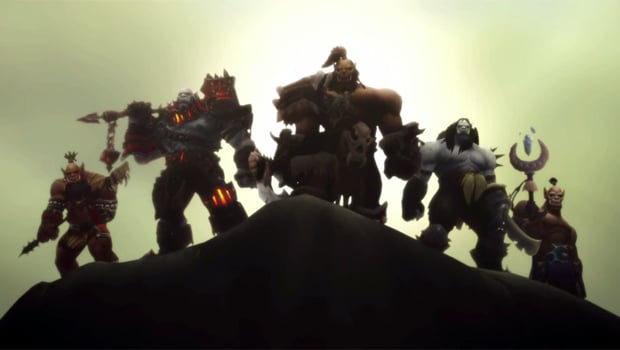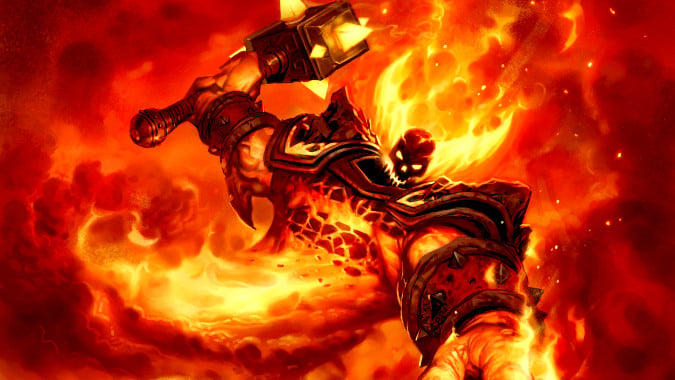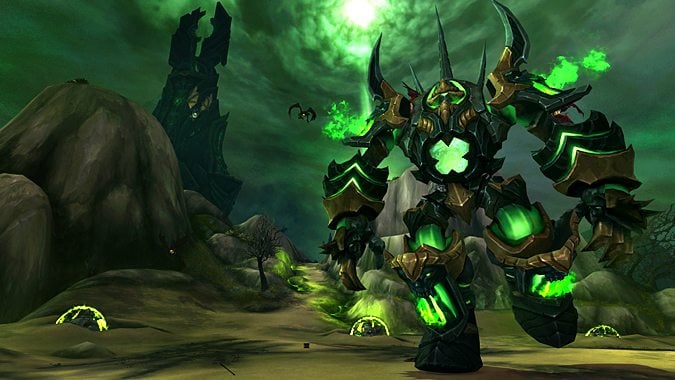There’s a difference between feedback and harassment, and sometimes players forget what it is

It feels like there’s a bit of confusion in the World of Warcraft community about what is and isn’t acceptable as feedback or criticism about the game, versus what is or isn’t considered a targeted harassment campaign. I admit I’m not entirely sure how people get these two things confused, but as a long-time veteran of criticism aimed towards World of Warcraft, I thought I could offer up some helpful advice.
Perhaps even honest criticism, if you prefer.
First up, I understand that there’s a lot of passion involved in gaming communities. I’ve been writing about World of Warcraft since 2007 — that’s fourteen years. If my time writing about the game was a child it would be in middle school. You don’t do this job for this long if you don’t have strong feelings about the subject. But even back when I was banging the “Colossus Smash is bad for Fury Warrior rotation” drum on an almost weekly basis, I never mentioned anyone at Blizzard by name, not even the person who was in overall charge of WoW and its design choices at the time.
I didn’t do that because it’s not germane to the discussion. If you have a problem with a design element or gameplay aspect of a game? Criticism should be levied at that aspect, not used as a specific attack against anyone who’s working (or has worked) at Blizzard.

No single developer is responsible for game design
Almost no decision made about the design of a game like World of Warcraft is the sole province of a single developer. Decisions are not handed down from Senior to Junior Devs like tablets on Mount Sinai; they’re the result of groups working together to create and implement a shared vision. Singling out someone because they have the words “Narrative Designer” or “Game Director” in their bio is not only pointless, it’s directly harmful to any critique.
When players make it personal they’ve stopped talking about game design problems and moved on to assigning blame. But game design is a team effort, and the person being blamed is rarely solely responsible. A single person can’t simply flip a switch and change a game system players don’t like, so attacking specific developers won’t drive change.
Even if a single person were responsible for the decision, attacking them personally won’t help. Games created by small teams (or even solo developers) might be the product of a singular person’s design vision, like Stardew Valley, but it’s still not okay to frame feedback as a personal attack. It doesn’t matter which game, which game studio, or which game developer you’re talking about — that’s never okay. It only adds to the toxicity in the gaming community and makes developers more wary of interacting with players.
And it’s not effective, either. When players’ critiques focus on attacking a specific developer rather than offering feedback on the game’s design, it takes focus away from the feedback — and makes it a lot less like that anyone will seriously consider the criticism.

Criticize the decision, not the individual
If players want developers to think about what they’re saying, feedback should criticize the decision, not the people involved. And if a player is just trying to vent their frustrations rather than offering useful feedback, they should still leave the developers out of it. Developers aren’t here to be psychiatrists who talk players through their frustration, and they shouldn’t have to deal with being attacked just because players don’t enjoy something they’ve worked on.
But what if players leave good feedback and things don’t change immediately? That doesn’t necessarily mean the developers aren’t aware of the issue — or that they aren’t going to address it. The aforementioned Colossus Smash critique I levied for years didn’t result in an immediate change to how Fury’s rotation worked, because that’s not how feedback works. Redesigning game elements takes time, and you’ll rarely see a quick fix.
When players don’t see movement on issues they’ve pointed out, it’s fine to repeat the critique or expand on it, to remind developers it’s still an issue and explain why. But turning that critique into a personal attack on a specific developer — particularly a repeated attack — isn’t helpful to anyone. Beyond the fact that a single developer rarely has the power to make sweeping changes to the game, attacks won’t make developers suddenly pay attention to feedback.

Feedback doesn’t mean immediate change
I’m seeing a lot of people confusing I left feedback and yet nothing has changed as a justification for boorish, harassing behavior. But this behavior is never justified, no matter how frustrated players are.
Feedback can be very useful. I’ve seen very long forum threads where posters come and offer in-depth math, show simulations, and otherwise try and make a case for their feedback, and it’s great when players sit down and put a lot of thought into their feedback. The fact that players take the time to do that shows how much passion the community has for the game — and it can be frustrating when these careful critique doesn’t get the response players want.
But that still doesn’t justify harassment.
I’ve seen players on social media making dozens of posts targeted at specific developers, talking about how awful they are at their job, saying they should be fired, and swearing at them. That’s not feedback. That’s not putting a lot of thought into anything. Developers aren’t obligated to respond to personal attacks like they’re well reasoned feedback — and if they block players for attacking them, it’s not because they’re afraid of the truth bombs players are dropping. They’re just tired of the people screaming and swearing at them, as we all would be.
Feedback is valuable, but it’s not just valuable because players obviously know better than the development teams. Sometimes it’s valuable because it shows the different ways people feel about specific game systems so developers can brainstorm how to best address a multitude of different player concerns. Sometimes it’s valuable because it shows places where the system could be iterated on, which can help drive future development. Sometimes it’s valuable because it’s wrong, and it shows how someone formed a misconception so developers can start addressing it. But no matter how legitimate the critique, developers aren’t obligated to respond to it in any specific way.
That doesn’t mean they’re not listening. That doesn’t mean they’re arrogant. That that doesn’t mean they should be fired. That doesn’t mean they deserve harassment, insults, and abuse.

Good feedback doesn’t make things personal
Let’s consider an example outside of the gaming world: say someone likes to eat at a particular local restaurant, and has for years. They really love the hot wings, but one day the hot wings taste a little different. It’s valid for that person to explain and say they preferred the older hot wing recipe. It’s not valid to throw twenty seven rotten pumpkins filled with horse excrement and with swear words carved into them at restaurant-owner’s house. It’s absolutely not valid to get everyone who feels the same to follow the cook around so that when they go into the local Bed, Bath and Beyond, people throw more excrement pumpkins at them. That would be a ridiculous in real life and it’s just as ridiculous online.
Valid critique is impersonal. It doesn’t make targeted attacks on the people making the games (or people working at the restaurant) — and preferably doesn’t mention them at all, because they aren’t the point. Even if players believe that X developer is ruining the game, there’s no reason to specifically mention them. Instead, players should game systems that they believe are detrimental and explain why they’re detrimental. There’s no reason to call developers (or cooks) names or say that it’s okay to throw excrement pumpkins at them because they didn’t change their hot wings recipe back.
It’s absolutely never okay to hurl excrement in an old, rotten pumpkin at someone — even if that rotten pumpkin is abusive words online, a campaign to get someone fired, or spitting on someone in a video game. It’s not okay to follow individual people from Facebook to Twitter to Linkedin and leave personal attacks and insults aimed at them over the game. That’s just plain harassment.
Doing any of those things doesn’t show that players are passionate about the game and just frustrated that developers haven’t fixed things. None of it’s feedback and none of it’s helpful. And developers seeking to escape this treatment by ignoring people, blocking people, or just not engaging aren’t being too arrogant to listen — it’s just self preservation.
The problem is that there’s been a disconnect between what feedback is, what feedback does, and what players believe feedback should do. Feedback doesn’t include personal attacks. Feedback doesn’t require a specific response. And feedback may not change things immediately.
But no matter what the result of feedback, it’s not the cook’s fault — or the developer’s.
Please consider supporting our Patreon!
Join the Discussion
Blizzard Watch is a safe space for all readers. By leaving comments on this site you agree to follow our commenting and community guidelines.
 @MatthewWRossi
@MatthewWRossi




